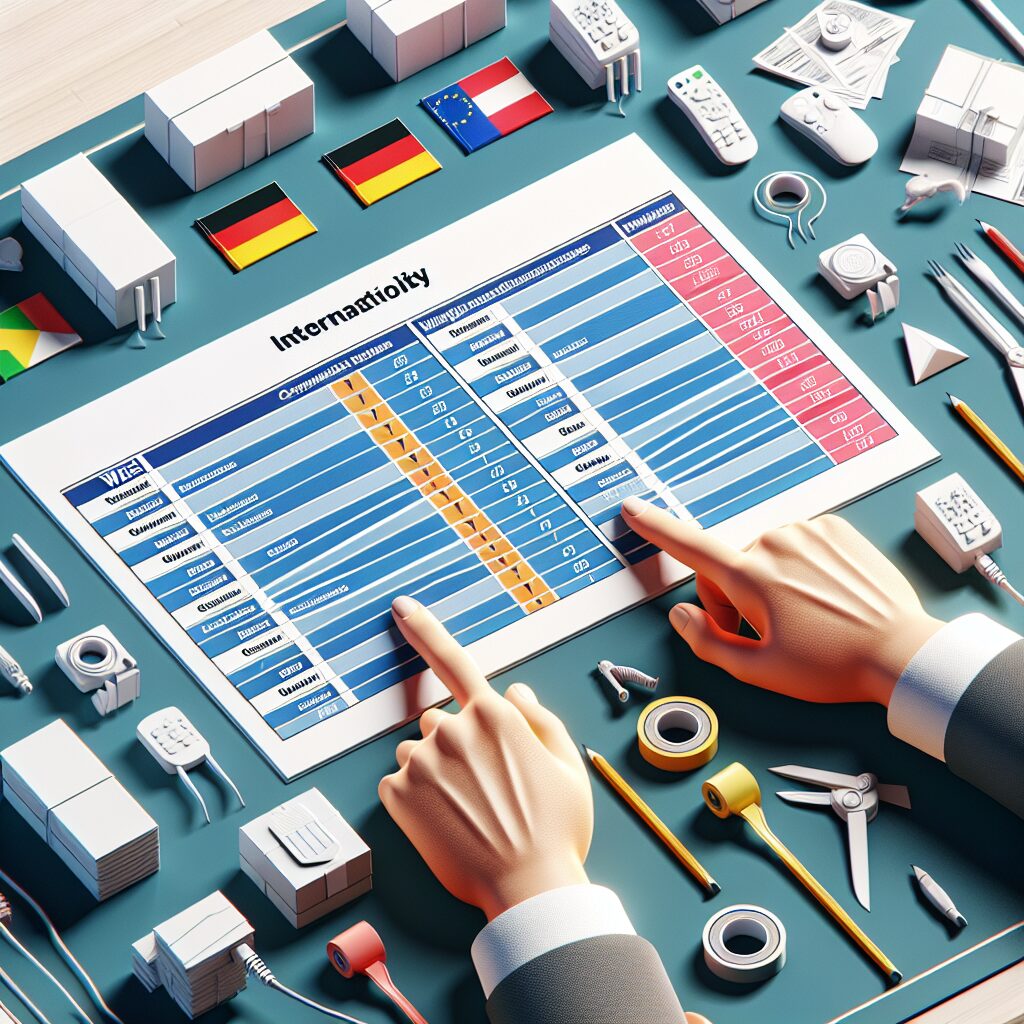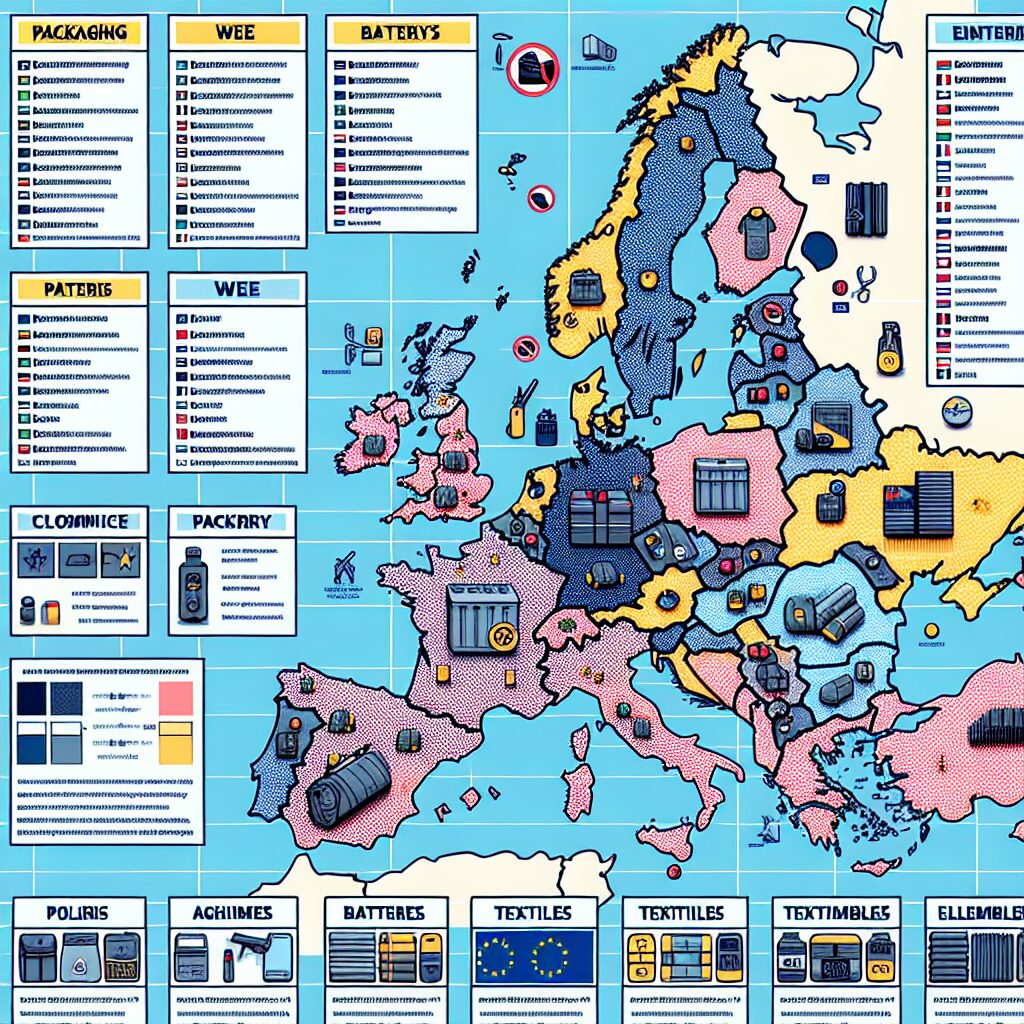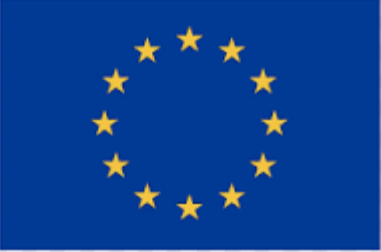About eldris
epr.eldris.ai leads the EPR sector, in fast, automated, AI Agent EU Complaince. LUCID Packaging, WEEE, and Battery Compliance for Brands, E-Commerce and Service based businesses expanding into the EU.
In This Article
- UK EPR compliance is legally mandatory for businesses meeting material thresholds.
- Packaging, WEEE, and battery regulations impose specific reporting and labelling duties.
- Fulfilling obligations prevents hefty fines and protects seller accounts on marketplaces.
- Automation and compliance schemes can help ensure efficient reporting.
- UK and EU EPR laws differ—dual-market sellers must manage separate obligations.
What is EPR and Why it Matters in the UK
Extended Producer Responsibility defined
UK EPR compliance refers to the adherence to the United Kingdom’s Extended Producer Responsibility (EPR) regulations, which place the responsibility of waste disposal and recycling on the businesses that manufacture, import, or sell products that become waste. These regulations are part of an ongoing initiative to ensure that producers take full accountability for the lifecycle of their products, especially in terms of post-consumer waste.
The EPR model compels producers to fund or manage the collection, recycling, and disposal processes for the packaging, electrical goods (WEEE – Waste Electrical and Electronic Equipment), and batteries they introduce to the market. This promotes a circular economy and reduces the environmental impact associated with commercial and consumer waste. Adopting UK EPR compliance measures is not just a legal obligation but a critical pillar of corporate sustainability strategies.

Who Must Register for UK EPR
Threshold obligations for UK sellers
Not every business is automatically obligated to meet UK EPR compliance requirements—specific thresholds determine whether a producer must register. A business operating in the UK must comply if it meets the following conditions within a single calendar year:
- It is registered in the UK or has a physical presence through a subsidiary or fulfilment centre.
- It imports or manufactures more than 25 tonnes of packaging materials onto the UK market.
- It supplies packaged goods—either own-brand or third-party—from the UK or into the UK.
- It places over 5 tonnes of WEEE or batteries into the UK market during the financial year.
Once eligibility is confirmed, the business must register with the appropriate compliance scheme and submit regular data reports concerning the volume and type of materials supplied. Moreover, certain sellers on online marketplaces may carry shared responsibility with the platforms, depending on the contractual agreements and logistics arrangements involved.
“If you’re a seller shipping any volume of packaged goods or electronics into the UK, understanding your EPR thresholds is your first checkpoint to full compliance.”
Understanding Packaging Regulations
Packaging regulations under UK EPR compliance dictate that producers and sellers must account for the packaging materials used in consumer and transit packaging including plastic, cardboard, glass, steel, aluminium, and composite materials. As part of the revised Producer Responsibility Obligations (Packaging Waste) Regulations 2024, businesses must:
- Track and report the amount and material type of packaging placed on the market.
- Contribute financially to the collection, sorting, and recycling processes based on the quantity and recyclability of their packaging.
- Meet specific labelling requirements regarding recyclability to help consumers dispose of material responsibly.
This data must be reported biannually. Reporting deadlines are strict—missing them can result in significant enforcement penalties. Producers may also need to conduct supply chain audits to ensure accuracy in material tracking. It is highly advisable to implement automated reporting tools to streamline this obligation. For more detailed information about packaging categories and schemes within producer responsibility, refer to UK government requirements for packaging EPR.
WEEE Compliance: What Sellers Must Know
Scope and categorisation of electrical products
WEEE, or Waste Electrical and Electronic Equipment, is a major focus under the UK EPR compliance framework. Any business that places electrical goods on the UK market—whether as a manufacturer, importer, or distributor—is obligated to register under a WEEE compliance scheme.
Electrical goods are classified into several categories including large household appliances, IT equipment, lighting, and toys, among others. UK guidelines are harmonised with EU categories but implemented with UK-specific reporting mechanisms.
The primary obligations for producers include:
- Registering with the Environment Agency directly or through an approved compliance scheme.
- Labelling products with the crossed-out wheeled bin symbol.
- Financing the recovery and recycling initiatives for end-of-life goods.
Retailers are also compelled to provide take-back programmes if they sell similar items. Small electronic item return schemes and in-store collection bins are now common. For specific WEEE categories and guidance on registration, visit Learn more about Marketplace & E-Commerce Compliance Standards.
Battery Responsibilities Under UK Law
Under the UK Batteries and Accumulators Regulations, any business that places batteries—either loose or embedded in a device—must ensure full compliance. There are three types of batteries considered under EPR legislation: portable, automotive, and industrial.
Obligated businesses must:
- Register annually with the proper regulatory body.
- Provide battery take-back facilities if they sell over 32kg of portable batteries annually.
- Label batteries with correct symbols to denote composition and proper disposal methods.
- Finance the responsible disposal and recycling of used batteries.
It is often overlooked that even embedded batteries—such as in toys, remote controls, and certain appliances—can trigger reporting obligations under UK EPR compliance. Sellers must carefully audit product listings to identify applicable battery responsibilities.
How to Register for UK EPR Schemes
Registration is a legal requirement for businesses meeting the aforementioned thresholds. Registration opens every year and must be completed within the first quarter. Late registration can incur immediate fines and retrospective checks.
The process broadly involves:
- Identifying the applicable product streams (Packaging, WEEE, Batteries).
- Selecting an approved producer compliance scheme (PCS) or directly registering via the Environment Agency portal.
- Submitting historical and current-year data (tonnage reports by material type).
- Paying the applicable registration and recycling fees.
A large number of PCSs offer turn-key services that manage data submissions, liaise with agencies, and distribute modulated costs across producers. Early engagement with a scheme provider is recommended, especially for first-time registrants.
Marketplace-specific Rules for Amazon/Ebay Sellers
Third-party sellers using platforms such as Amazon and eBay are also subject to UK EPR compliance laws. Recent amendments have designated online marketplaces as ‘fulfilment service providers’, meaning they may share or bear certain EPR burdens.
Amazon, for instance, launched its EPR Service across the UK and EU to assist sellers by handling reporting and fee obligations. However, this service requires sellers to submit data directly and agree to Amazon’s data collection protocols. Failure to comply may result in account suspension or delisting of non-compliant products.
eBay is also deploying compliance communications for UK-based sellers, encouraging them to register with PCSs or declare exemption if beneath the minimum thresholds. Each platform operates slightly differently, so sellers must read the latest policy announcements or visit Read a related article for marketplace compliance guidance.
Penalties for Non-Compliance in 2024
The Environment Agency, Scottish Environment Protection Agency (SEPA), and Northern Ireland Environment Agency are actively monitoring and enforcing UK EPR compliance. In 2024, enforcement fines have significantly increased, with noncompliance in packaging and WEEE schemes leading to penalties starting at £5,000 and scaling up based on the severity of the violation.
Other consequences include:
- Prosecution and criminal penalties for repeated non-compliance.
- Product delisting or bans from online marketplaces.
- Damage to brand reputation and consumer backlash.
Proactive registration, consistent documentation, and internal education are the best ways to avoid penalties. Ignorance of the law is not considered a defensible reason for non-compliance.
Differences Between UK and EU EPR
While the UK and EU EPR frameworks share common objectives, several key differences impact businesses operating in both markets. Post-Brexit, the UK regulations are no longer harmonised under EU directives, and producers must comply separately in each jurisdiction.
Key differences include:
- Packaging reporting intervals—UK typically requires biannual reports while some EU states mandate quarterly submissions.
- Product labelling—symbol placement, language requirements, and recyclability indicators may differ.
- Registration bodies—compliance schemes vary by member state in the EU, whereas the UK uses a unified agency model.
Brands selling cross-border must ensure they are properly registered in each national scheme individually. For an interactive comparison between UK and EU compliance requirements, consult Complying with EU EPR as a UK seller.
Tips to Automate and Simplify UK EPR Reporting
Given the granularity of data required, automating EPR compliance reporting can dramatically reduce errors and save time. Below are professional tips for streamlining compliance processes:
- Implement SKU tagging systems to automatically track EPR-relevant attributes such as material type and weight.
- Use advanced inventory tools with EPR modules to generate tonnage data.
- Outsource to a Producer Compliance Scheme that offers API integrations with e-commerce platforms.
- Maintain continuous education for procurement teams regarding material sourcing and recyclability decisions.
Automation not only ensures accuracy but positions the business for fast adaptation as regulations modernise. Early adopters of automated processes have shown measurable improvements in operational efficiency related to UK EPR compliance.
Conclusion: Stay Ahead in EPR Compliance
[CONCLUSION_CONTENT]
Great guide on epr-compliance-uk-sellers-requirements-guide – Community Feedback
Who must register for EPR in the UK?
All UK businesses placing certain quantities of packaging, electricals, batteries, or similar goods onto the UK market must register for EPR, including e-commerce sellers and importers.
What are the main EPR obligations for UK sellers?
UK sellers must register with EPR schemes, report volumes of packaging or relevant materials, pay compliance fees, and ensure correct labelling and recycling information. Non-compliance can result in substantial fines.
Does WEEE compliance apply to my e-commerce business?
If you sell or import electrical or electronic equipment in the UK, your business must ensure WEEE compliance, covering registration, reporting, and offering take-back or collection options when required.










